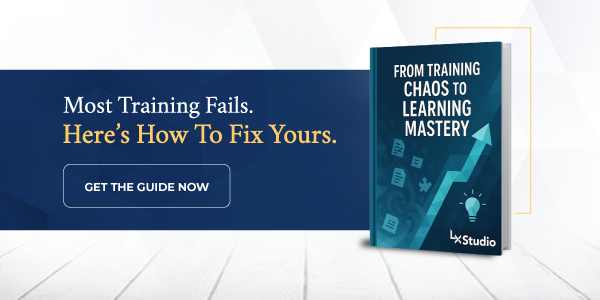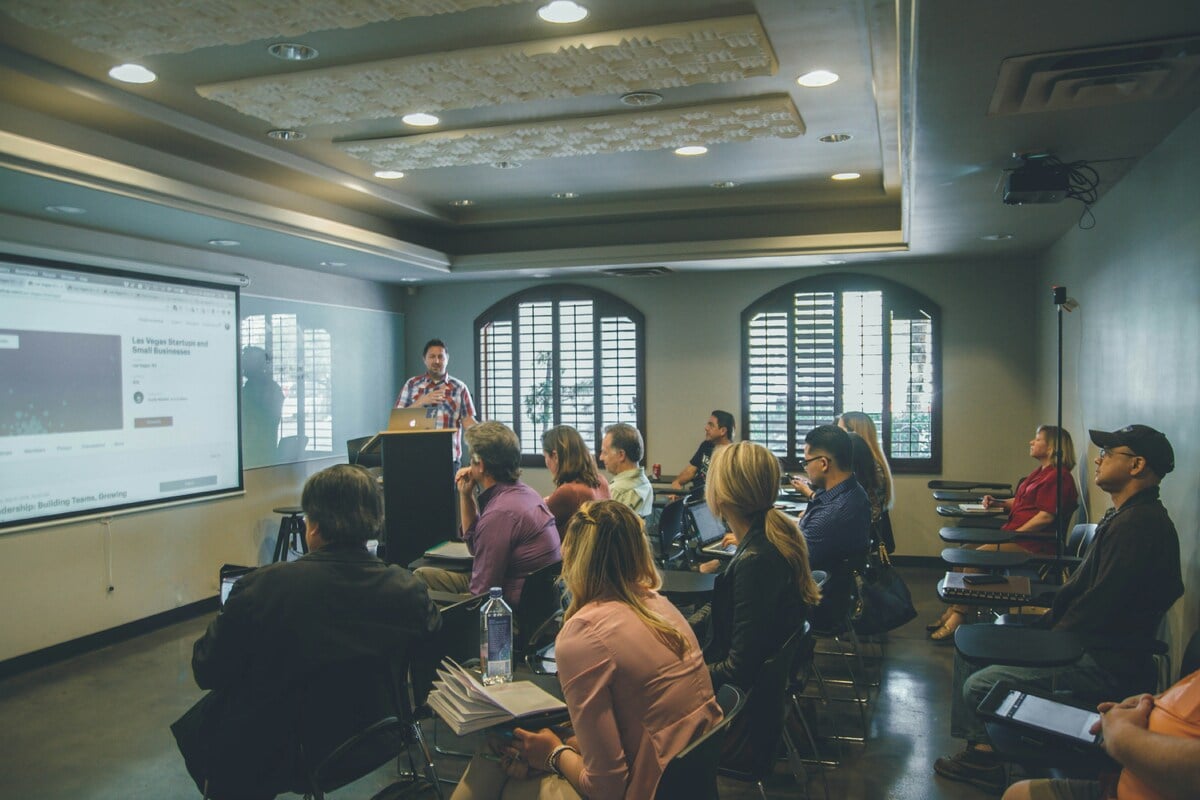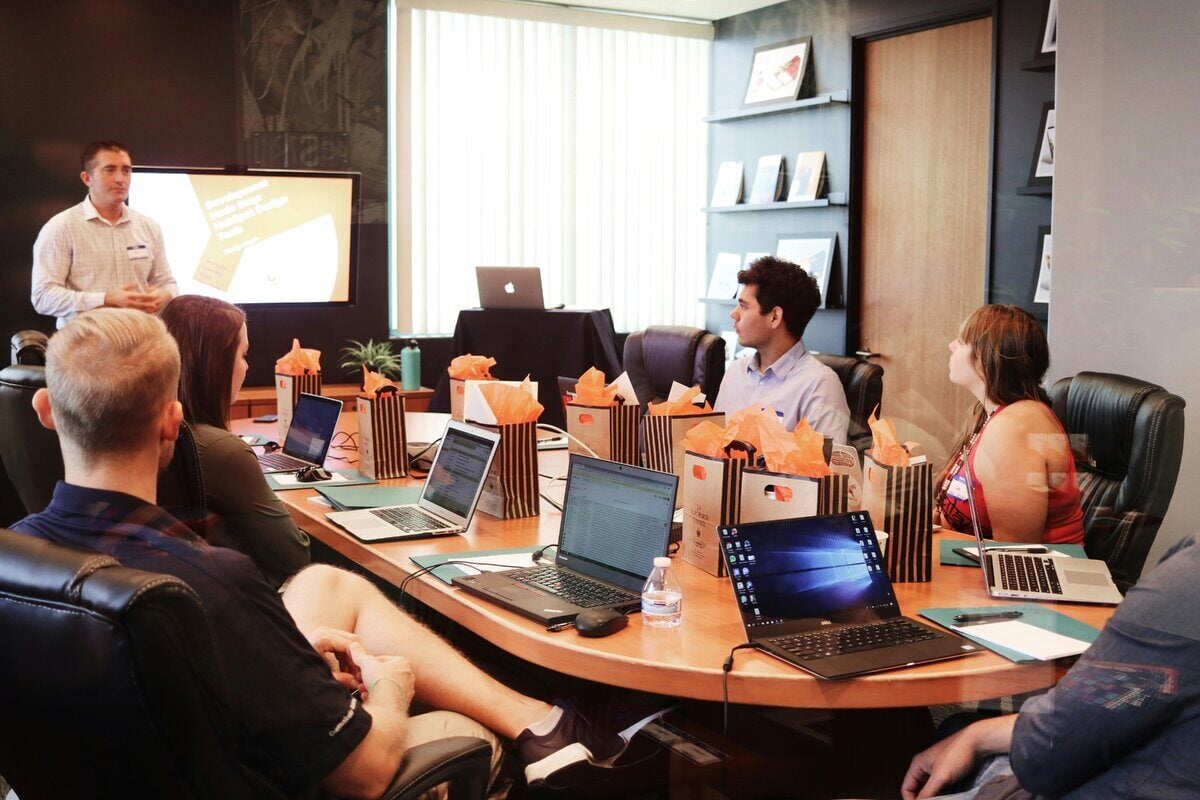
Measuring Success: Effective Assessment Strategies for Modern Learning
According to one recent study, a massive 70% of all organizational leaders say they are currently dealing with a skills gap in their workforce (or expect to be).
In some sectors like financial services, this number can be as high as 75% - it varies depending on the industry.
The world around us is constantly changing and businesses are in a position where they need to pivot as a result.
The issue is that while leadership may have the skills needed to do so, their workers might not.
They also may not be sure where those gaps exist because the learning techniques they're using are still antiquated, "one size fits all" affairs that have done little to keep up with the demands of modern business.
Regardless, it's not as simple as just making employees take a few assessments every quarter and hoping for the best.
You need to re-think your approach to learning in the first place, and you need a way to measure that success in real time.
This requires effective assessment strategies that acknowledge what you're trying to do and how well you're trying to do it.
Thankfully, getting to this point isn't necessarily difficult - but it will likely require you to re-evaluate the way you currently handle learning moving forward.
Moving Beyond Traditional Assessments
One of the most important things to understand about traditional assessments is that, even though they're widely used, they tend to be more general by design.
Even with something like a quiz-based assessment, you're trying to force so many different students through the same learning style that the assessment itself essentially becomes a "Jack of All Trades, Master of None."
You're testing a person's mastery of skills that cannot be that complex because the assessment must be valid to the widest possible audience.
What you end up with is something that basically assesses how well people can memorize certain subjects - not how they can apply those skills in real-world situations.
This all underlines the need for more authentic, performance-based evaluations across the board.
These go beyond basic knowledge and instead take a deep look at how well learners can take what they've been exposed to and apply it throughout their daily lives.
A scenario-based assessment, for example, is one where learners might be tasked with solving a problem or completing a task that mimics what they will see regularly in their future work environment.
This is a far more accurate way to assess not just their knowledge, but their overall capabilities.
This also helps illustrate a real need to balance formative and summative assessments in training.
The most effective training programs need to strike a balance between the two.
Formative assessments are conducted during the learning process and help instructors see where people are and what specific work still needs to be done.
Summative assessments, on the other hand, take place at the end of the learning session and evaluate in a more precise way whether the objectives of the course have actually been achieved.
Designing Effective Assessment Strategies
When it comes to designing effective assessment strategies, the number one thing you can do to help ensure success is to align assessments with your learning objectives as an organization.
This is one of those situations where you truly cannot get "too specific" or "too precise" for your own good.
When assessments are directly tied to the intended goals that you want to be able to accomplish in the first place, it makes sure that they measure the right skills and knowledge.
This alignment ensures that assessments are purposeful, valid, and meaningful, providing a clear gauge of how well learners have achieved the goals of the program.
As stated, it's also hugely important to bring in various assessment types to keep things fresh.
Don't just look at scenario-based assessments.
Go for project-based as well.
The former allows learners to apply what they've already learned in simulated environments, which can help focus on larger skills like decision-making and problem-solving.
Project-based will encourage creativity, collaboration, and thinking outside the box.
When you focus on all these different project types together, you both keep people engaged and get a more well-rounded look at what they're capable of as well.
Over the last decade in particular, technology has truly gotten to the point where it can meaningfully change not just how we're learning, but how we can assess that learning as well.
One of the biggest examples of this is a learning management system, otherwise known as an LMS for short.
This is a specialized assessment tool that allows for the creation of adaptive, data-driven assessments that provide instant feedback to both learners and instructors alike.
Technologies such as artificial intelligence and machine learning are also being used to design personalized assessments that adapt to individual learners’ strengths and weaknesses.
This creates a more dynamic, tailored learning experience while also improving the accuracy of evaluation.
Implementing Continuous Improvement Processes
As you work to implement new and more effective assessment strategies for modern learning, understand that the importance of using ongoing evaluation in training programs cannot be overstated.
A training program is never "complete." It is always a work in progress.
To make sure it's always getting better and moving in the right direction, you need to continuously evaluate your own assessments moving forward.
This helps identify areas of improvement not only in learners but also in the training design itself.
Regular assessments, surveys, and feedback loops allow organizations to make data-driven decisions to optimize the learning experience and outcomes.
To gather the type of feedback you need and analyze it properly, you can use tools like post-assessment surveys, gather informal feedback from learners and instructors, and even lean into performance data.
There are tools available like learning analytics that can then take all the data you're collecting and turn it into insight that you can act on, generating improvements in terms of how content is delivered, how you're assessing results, and how you're supporting learners on their own terms.
But what you truly need is a culture of continuous learning and improvement.
Everyone - from organizational leadership to the most recently added learner - needs to understand that this is not a game that you ever truly "win."
Organizations should provide opportunities for learners to revisit material, learn from their mistakes, and progress at their own pace, fostering an environment where learning is an ongoing process rather than a one-time event.
Rigorous Assessment in Micro-Credential Programs
Note that much of the discussion up to this point has been centered around more traditional learning programs.
When it comes to micro-credentials - that is to say, smaller and more focused learning units that certify specific skills or competencies - things get a bit more challenging for a variety of reasons.
Unlike traditional courses, micro-credential programs often span shorter durations and cover niche topics.
The major challenge lies in ensuring that these programs assess competencies comprehensively and rigorously, without oversimplifying the skills or overlooking critical nuances.
To help make sure that you're gathering the information you need and are putting yourself in a position to act on it, you need to develop clear metrics and performance criteria for assessment at the beginning of the process.
Making an effort to understand success cannot be seen as an afterthought.
You need to engage experts in the process and bake these considerations into the very DNA of what you're doing.
Because of the unique nature of micro-credential programs and training assessment methods, you'll also need to use a combination of assessment types to truly understand the situation you're dealing with.
That includes not only practical demonstrations but also peer reviews, case study analysis, and more.
All this insight will offer a more reliable measure of how a learner is grappling with the material while making the micro-credentials themselves more trustworthy.
All this will obviously vary depending on exactly what type of organization you're talking about.
Learning evaluation must adapt in kind.
A technology company might require users to complete challenges to receive feedback from their peers.
Regardless, the ultimate point is that empowers will trust the micro-credential holder more because they have been able to demonstrate a level of competency in their field that goes beyond simply "pass/fail."
LX Studio's Approach to Learning Assessment
At LX Studio, we pride ourselves on taking a more holistic approach to learning assessment - one that is more in line with the demands of the modern workforce.
Our team of passionate, knowledgeable learning design experts will partner directly with your organization to create the industry-leading micro-credentials and badges you need to remain competitive moving forward.
This includes new opportunities to help people demonstrate not only their knowledge but their skills and abilities.
The hope is that this creates a much more complete picture of what they can do in a professional setting.
What you're left with is a process that is simple by design, using straightforward visual language to describe learning.
That language can be taught in a matter of minutes and is as easy to use as it is to understand.
It also invites collaboration, which brings together teams from diverse backgrounds to come together and solve common challenges in the same way they would while on the job.
Using these tools also brings a much-needed level of focus and clarity to the proceedings.
Using this type of shared language and visual modeling encourages clear and focused communication, which helps keep everyone on the same page and move in the same direction at all times.
With advancements like artificial intelligence looking to upend virtually every industry you can think of, that pace is going to increase soon.
Because of that, organizations need to be able to design assessments and learning environments that truly reflect someone's potential on a person-by-person basis.
They need to go beyond traditional assessments that just test how well someone can memorize topics and into more authentic, performance-based evaluations.
Not only will this help increase engagement, but it will meaningfully improve learning outcomes as well.
Things have advanced to the point where you can do this in several different ways.
Chiefly, organizations have found success through a combination of technology, a balance of both formative and summative assessments, and especially through micro-credentials.
Regardless, it's clear that a more comprehensive, continuous, and meaningful assessment strategy and micro-credential assessment is needed to prepare today's workers for tomorrow's challenges.
Thankfully, the tools are there - it's simply up to you to use them.
If you're interested in finding out more about effective assessment strategies for modern learning, or if you're interested in discussing how to build more effective and innovative training programs with someone in a bit more detail, please don't hesitate to contact the LX Studio team today.


.jpg)

.png)

